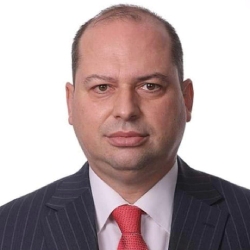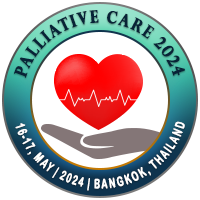
Dr. Shpend Haxhibeqiri
University of Prishtina, KosovoTitle: Scale of stress manifestation, anxiety, depression and professional burning in relation to resilience of Kosovo healthcare workers during the period of COVID-19 pandemic
Abstract
Objective: After a period of almost 2 years, our country continues to face the Covid-19 Pandemic. Necessary medical services for the population remain the key profession that connects the wide range of services and the first reaction to a situation like this. This study aims to assess the impact of the Covid-19 pandemic on the level of anxiety, stress, depression and burnout of health professionals, and to determine the relationship between them and coping skills with reference to the development of resilience. To propose appropriate measures to support the mental health advancement of health workers.
Methods: The study has a quantitative character, the methods were correlative and descriptive. The DASS questionnaire (Lovibond, S.H. & Lovibond, 1995) was used to collect data for stress, anxiety and depression. The MBI questionnaire (Maslach 1996) was used to measure the degree of occupational burnout. The ARM-R questionnaire (Hungary 2008,2011) was used to measure resilience.
Sample: Respondents who participated in this research were health care professionals from CUCK, NIPHK, regional hospitals and CCFM from Prishtina, Prizren, Peja, Gilan, Ferizaj and Gjakova. The number of participants was 514, of which 376 were females and 137 males.
Results: The average value of stress is 13.20 with a standard deviation of 11.70, for the anxiety level the average value is 11.74 with a standard deviation of 10.91, for depression the average value is 10.73 and the standard deviation 11.18. Professional burnout was on an average of 40.54 with a standard deviation of 20.16, and a fairly high level of resilience of 48.14 with a standard deviation of 6.12.
Conclusions: Front-line work in Covid-19 clinics, has easily affected the mental health well-being of health care workers by showing the presence of moderate levels of anxiety, stress and depression, while the burnout rate was more present to the younger age, which suggests that with work experience the rate of burnout decreases, which has been proven to us from the results, by finding a negative correlation between burnout and experience. The high development of resilient factors made them very functional during their work.
Keywords: Stress, Anxiety, Depression, Burnout, Resilience, Health Workers, Covid 19.
Biography
Shpend Haxhibeqiri, director of Institute of Kosovo Forensic Psychiatry. He has completed a postdoctoral fellowship on mental health research at -University of Illinois Chicago-USA 2017/18, doctor of science at University of Mostar –Bosnia and Herzegovina. He is a specialist of psychiatry at the University Clinical Center of Kosova, Ministry of Health. He is a medical doctor at the University of Prishtina. He is a member of international network of researchers and scientifics researchgate, Berlin, Germany www.resaearchgate.net. He is a secretary general of the Kosovo Psychiatric Association www.apk-ks.org, since 2012.

